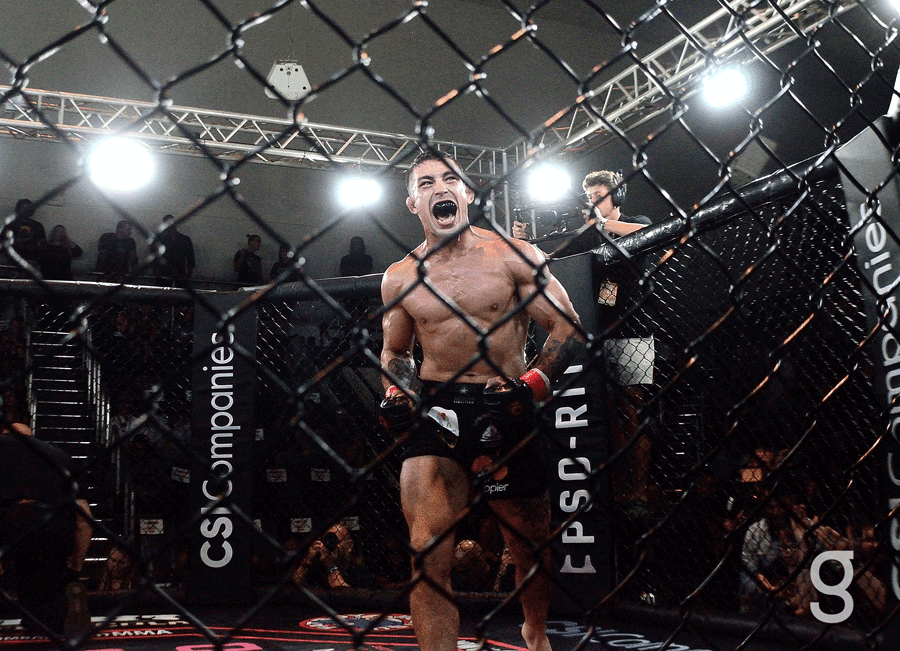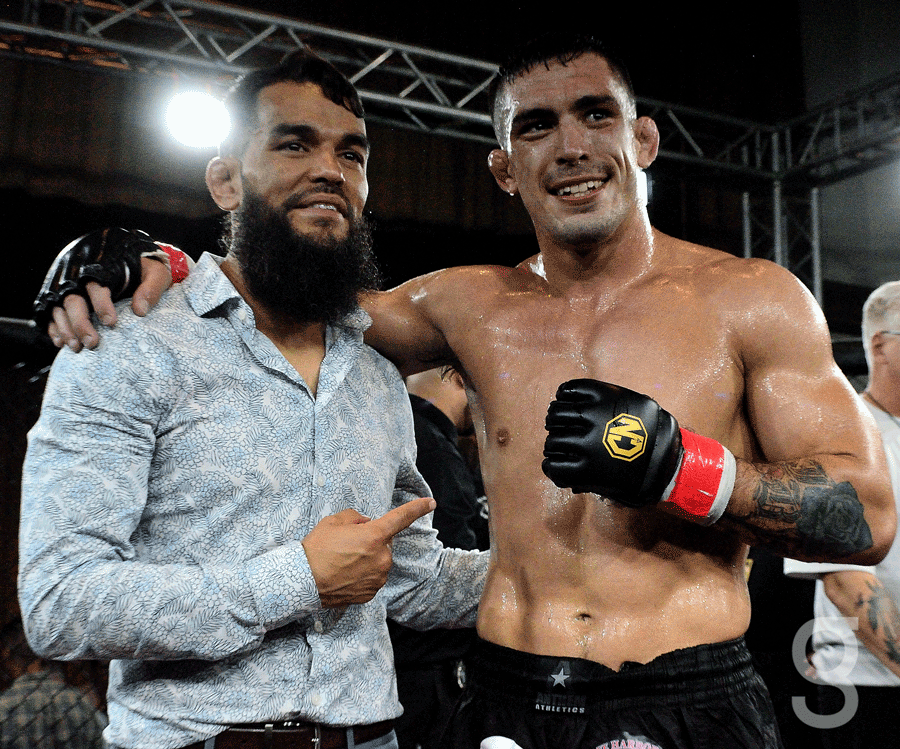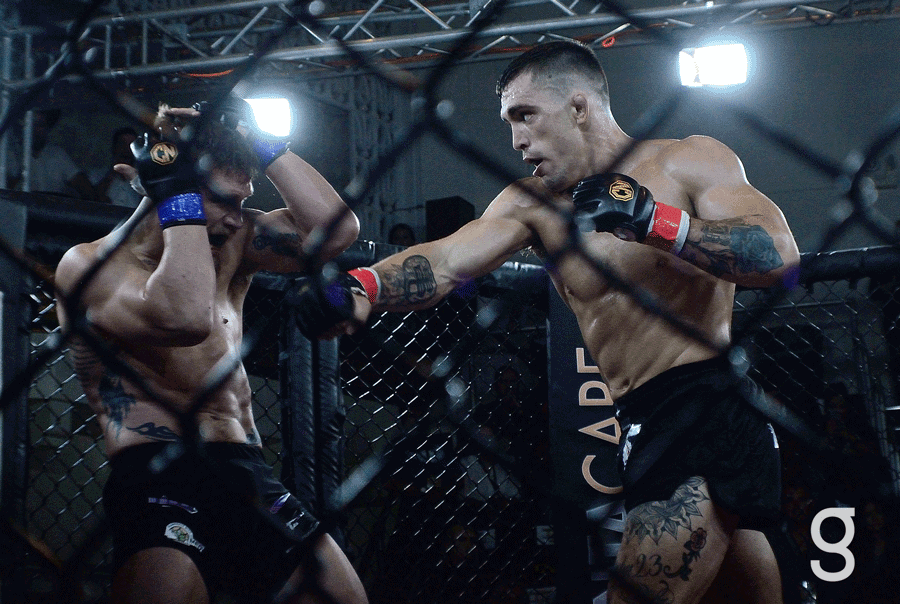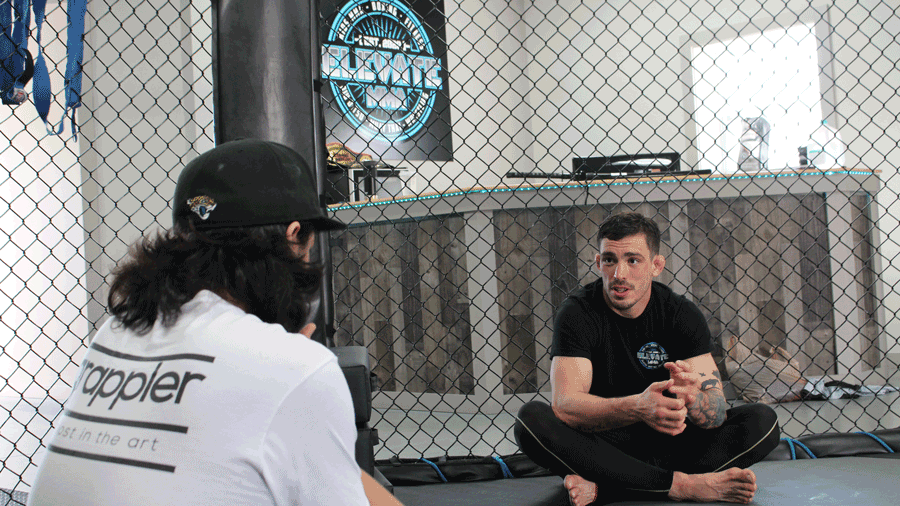Preston Parsons Q&A, Pt.1


Preston Parsons is an MMA icon in northeast Florida,
co-owner of Elevate MMA in Jacksonville Beach, and he isn’t even thirty years
old yet. He made his UFC debut last summer. His road to gold and glory begins
now.
-GrapplerMag: What do
you think initially drew you to the fight game?
Preston Parsons: “As a
kid I loved the Rocky movies and stuff. I wanted to be a boxer. I think in my
elementary school yearbook when they ask, ‘What do you want to be when you grow
up?’ I wrote boxer. But at the time, I didn’t know what grappling was. I knew
what pro wrestling was, but I never liked it as a kid. I didn’t know there was
MMA and jiu jitsu. When I saw that, I was like, I want to be one of those guys.
I want to be the guy submitting everybody, not just a boxer.”
-Who were the first
fighters that caught your attention when you first became a fan?
“Frankie Edgar was the
’55 champ when I started watching UFC. Anderson Silva, of course. My favorite
fighter was Joe Lauzon, he was on a spree at that time. Benson Henderson
[too].”
-Did you play any team
sports growing up?
“I played Pop Warner
football. I played baseball in 2000 when I was four or five, and that was one
of the first spankings I can remember getting. It was so boring, I would sneak
out of the dugout to eat my parents’ nachos. My dad told me, ‘If I see you
sneak out again I’m going to spank your butt’…and he caught me.”
-First memories of being
at the gym?
“I try to keep it
similar to the way I feel when I train now. I got on Google and found like
three schools in the area, and I just showed up. It was good, I was excited and
eager to learn. I try to keep the same mentality now.”
-How long did you train
before you started to compete?
“Couple months. Then I
did a NAGA tournament. I was 16, about to be 17. I won, then I did a bunch of
tournaments until I was 18. In August of 2013 I turned 18. A few weeks after
that I fought my first fight.”
-Lots of initial
success?
“My first six fights
were all in one year and I won all six, five amateur, and I went pro that same
year.
When I first started training I was too young to fight. We had two
or three guys [at the gym] who were fighting, one would come in the day, one
would come at nighttime, because they had jobs. I was there for both, so I’d do
the guy in the morning’s fight camp, I do the guy at night’s fight camp, and
when it came time to fight, they’d walk out and fight and I wasn’t allowed
to.
I always told myself, as soon as I can fight, I’m going to make a
statement. Be aggressive, be dominant.”
-Talk a little about
your relationship with Mitchell Chamale and Combat Night.
“They’ve always done
good shows. They’ve always taken care of me as much as they could. [Mitchell]
is a fighter himself, he puts fighters up in his house. He understands how it
is. It’s gotta be a tough job for him, he’s friends with both guys when they
fight. It’s gotta be rough to be a promoter or a matchmaker.”

-You had to get surgery
on your hand after your last fight, how’s it doing?
“It’s healing up. I’m
striking with it again, it’s way better than it was [before surgery]. It’s
still swollen, I don’t know if it will ever look normal again, but I have full
movement with it. I can punch with it. Three months is the longest time I’ve
gone without punching since I was 15.”
-How would you describe
your fighting style?
“I try to be the best I
can be everywhere. I try to be the best striker, best grappler, wrestler, all
that stuff. I’m not the best at game planning, I don’t really study my
opponents like I should, something I need to learn from and start doing better
in the future.
I’m pretty good at winging it on the spot, I guess. I’m pretty
decent at figuring out what the guy is good at, what he’s catching me with, how
to shut that down or take that away from him. Put him in a spot where he’s not
as good, read it from there and take them apart where I think they're
weakest.
But I try to be well-rounded everywhere and put pressure on guys
and make them tired, then their skills go out the window. No matter how good
you are anywhere, as soon as you’re tired, you can’t really do any of that
stuff.”
-“Pressure” Parsons,
right?
“Yeah, that’s where that
came from.”
-What is a typical
weight cut like for you?
“Fifteen pounds. I start
five days out, so Sunday if the weigh-ins are on Friday. I’ll have three
gallons of water on that Sunday, then it’s just no more than 50 grams of carbs
a day, no sugar, no fruit. Then cut sodium on Wednesday. Start real high [water
loading] in the beginning of the week, then on Friday it’s six or seven pounds
of water to sweat out. Personally I don’t use saunas, I do the sauna suit. So
I’ll put the Sweet Sweat on, sweatsuits and jacket, try to do a light jog, jog
it off.
All my amateur fights
were at 155, now I fight at 170 just because [at 155], leading up to the fight,
that’s all I could think about [was my weight]. I didn’t want to do it. It
wasn’t fun anymore. Now I look at it like the old philosophy, when there were
no weight classes. If he is bigger, he’s not gonna be that much bigger.
Strength has never been an issue in any of my fights, wins or losses.”
-Where would you say is
an area of your game you’re looking to strengthen or improve?
“I’ve recently had more coaches come in, like Professor Roberto [Cuartero III of Gracie Barra Jacksonville], and I’ve been working with Bryan Brown [at 10th Planet Jiu Jitsu Jacksonville], getting as many different opinions as I can get, but I’m trying to sharpen up everywhere. In my last fight, the standup wasn’t where it should be. My wrestling wasn’t where it should be, I couldn't get the takedown, which took away the jiu jitsu, so just sharpening up everywhere.”

-Did you know you were
on the UFC’s radar before they called to offer you a fight?
“I haven’t been super
active in my pro career, maybe two fights a year. I’ve heard talk about it for
the past two or three years, maybe longer than that. It was always kind of like
a pipe dream, everybody’s like, ‘You’re right there, what’s taking them so
long? When are they gonna call you?’ Guys were writing articles, possible
prospects for the Contender Series and possible prospects for short notice
fights, and I was always on those. It just never happened.
So I was just gonna keep fighting until eventually something
happened, but I didn’t quite know how to get in there. I got connected through
Mitchell with my manager, who had the right connections, thought that I was
ready for it and put me in there and got me the opportunity, so it’s been a
blessing.”
-You had less than two
weeks to prepare for the actual fight though, right?
“It was eight days out,
we flew [to Las Vegas] six days before the fight. I hadn’t been on a plane in
five or six years, I’d never been to Vegas, that’s for sure. It was awesome. It
was definitely out of my comfort zone a little bit. I haven’t really had to go
out in the world in a long time.”
-What were your
expectations for competing in the UFC versus what it actually was?
“I expected it to be
just like everything else, all the Combat Night shows, Titan FC shows [I’ve
been on], very similar, just more money. They had a guy waiting there at the
airport with my name on it, it made me feel good. Chauffeured everywhere we
went, a medical lady calling me, media [obligations]. It was the last
no-fans-in-the-stands event for them there [at the UFC Apex], so it was a
little empty.”

-What’s one thing you
learned from that experience that would help the team at your gym?
“Treat it just like all
the other fights you’ve had. That’s one thing I didn’t really do going in,
wasn’t focused. Focus while you’re there, that’s the main thing. I was so blown
away by everything, seeing Bruce Buffer, walking out, hearing my song, being at
The Apex, knowing I’m on TV. They made a little highlight, I didn’t even know
they made it, pulled up some of my old fights on it. So seeing all that I was
smiling, laughing, not nervous at all, and those little bit of nerves always
gives me an edge.
I like to be a little
nervous, not so nervous that I shut down, but [being] a little on edge makes
you faster, more twitchy not to get hit…We’ll have a full camp next time. Get
an opponent, see where he’s good, where he’s weak, put him where he’s weak, get
better at his strengths and don’t get caught in them.”
-How did the opportunity to open Elevate MMA arise?
“I was at another gym
for a long time, coaching. Me and the head coach kind of had a falling out, we
never really saw eye to eye on many things, and he wasn’t much of a
coach.
So me, Cord [Poe, co-owner of Elevate], couple other guys from the
gym decided, ‘Why don’t we start our own gym? We’ve been running this place for
the last two or three years. You should have your own gym now. We’re tired of
supporting this guy. We want to support you instead.’ Lots of support from Cord
and my parents.
The gym has grown, but
it’s not just because of me. All the guys that come in…it wouldn’t be a good
gym if it was just me in here everyday. Everyone that comes in makes the gym
what it is. They like rolling with me and I give them good work, so it works out
perfect.”
-When you come here, it sounds like you’re gonna get better regardless.
“Exactly. I can’t speak
for everyone, but for the most part, there’s no egos. We have good guys here.
You can push them, put them in bad spots, make them uncomfortable, and they're
not gonna freak out, get upset or anything like that, hold a
grudge.”
-What are your goals for
Elevate in the future?
“I want it to be a huge
gym. Different location, beachfront, glass windows all around so people can see
while we’re training. People walking down First Street can look in while we’re
training. Similar to what it is now. Everyone is welcome, help us keep the
doors open by paying your mat fee, paying your membership. More bags, a full
cage. A better version of what it is now. I want to grow the gym and I want it
to build, but my number one goal [has always been] to be a fighter.”
-30-

Brandon Ibarra
Brandon attended the College of Journalism at the University of Florida. He has one stripe on his white belt.




11 Comment(s)
Utterly indited subject material, thanks for selective information.
I will right away take hold of your rss feed as I can not in finding your email subscription link or e-newsletter service. Do you have any? Kindly allow me know so that I may just subscribe. Thanks.
Ahaa, its pleasant conversation concerning this post here at this weblog, I have read all that, so at this time me also commenting at this place.
Hello.This article was really motivating, especially since I was looking for thoughts on this subject last Monday.
Greetings! I've been reading your blog for a while now and finally got the bravery to go ahead and give you a shout out from Huffman Tx! Just wanted to tell you keep up the good work!
I'll right away seize your rss feed as I can not to find your e-mail subscription hyperlink or e-newsletter service. Do you've any? Please permit me know in order that I may subscribe. Thanks.
Link exchange is nothing else but it is simply placing the other person's webpage link on your page at suitable place and other person will also do similar for you.
Hi! I've been following your web site for a while now and finally got the courage to go ahead and give you a shout out from Humble Tx! Just wanted to say keep up the fantastic job!
Good day! I just would like to offer you a huge thumbs up for the great information you have right here on this post. I will be returning to your site for more soon.
Hello everyone, it's my first pay a visit at this website, and post is actually fruitful in support of me, keep up posting such posts.
What's up, I read your blogs regularly. Your writing style is awesome, keep up the good work!
Leave a Comment